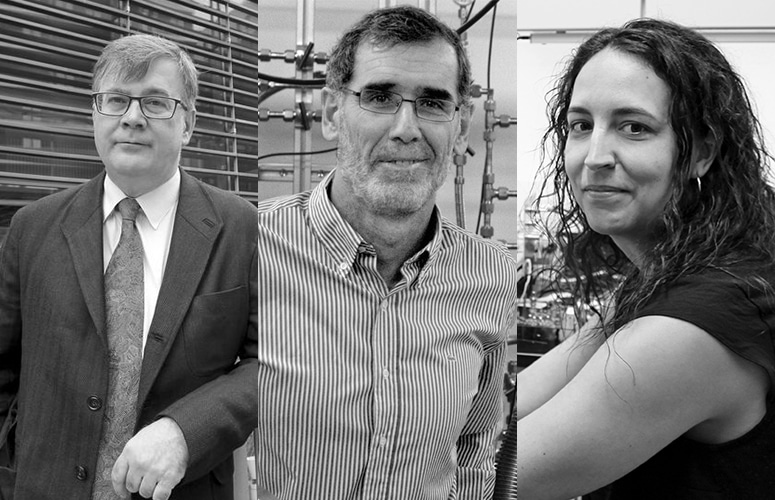A team of researchers at the Donostia International Physics Center (DIPC), the UPV/EHU, and Ikerbasque, with the participation of Harvard University, have been granted the first ERC Synergy Grant for the Basque Country since the creation of the European Research Council (ERC) by the European Commission in 2007.
This center was created with the goal of encouraging the highest-quality research in basic sciences in Europe, supporting the best researchers in all fields and of all nationalities who wish to continue their research beyond the limits of current knowledge. The ERC finances prestigious projects looking to develop innovative and high-risk research. Since its creation, the ERC has had a considerable impact on the breadth of scientific research in Europe.
The Synergy-2020 NEXT-BOLD project was grated to Juan José Gómez Cadenas, Ikerbasque researcher at the Donostia International Physics Center (DIPC), Fernando Cossio, Chemistry Chair at the University of the Basque Country (UPV) and Scientific Director at Ikerbasque, and Roxane Guenette, Adjunct Professor of Physics at Harvard University.
This six-year project has been granted €9.3 million and is the first project of its kind to be run by Basque institutions. While Harvard’s participation is quite important, the project was started and is being run mainly from the UPV, specifically the DIPC and UPV.
These researchers are going to work over these next six years to discover if a neutrino is its own antiparticle and thus answer some of the most fundamental questions about the origins of the universe.
This will undoubtedly be big news for the Basque scientific world.
In addition to the report, we’ll also leave you with two videos for laypeople made by the DIPC where they explain what their project is all about and why it’s so important for understanding the universe.
Synergy BOLD in brief (Eng) from DIPC on Vimeo.
Synergy NEXT-BOLD (eng) – What happened with the antimatter of the Universe? from DIPC on Vimeo.
Eureka Alert – 5/11/2020 – USA
9.3 million euros to investigate the origin of the universe
In 2007, the European Commission created the European Research Council (ERC) with the aim of promoting excellent basic science in Europe, supporting the best researchers in all fields and of any nationality who wish to continue their research at the frontiers of knowledge. The ERC funds prestigious projects that seek to develop innovative and high-risk research. Since its creation, the ERC has had a substantial impact on the European research landscape.
(Follow) (Automatic Translation)
DIPC – 5/11/2020 – Euskadi
9,3 millones de euros para investigar sobre el origen del universo con Synergy NEXT-BOLD
En 2007, la Comisión Europea creó el Consejo Europeo de Investigación (ERC por sus siglas en inglés) con el objetivo de fomentar la ciencia básica excelente en Europa, apoyando a los mejores investigadores e investigadoras de todos los ámbitos y de cualquier nacionalidad que desearan continuar su investigación en las fronteras del conocimiento. El ERC financia proyectos de prestigio que buscan desarrollar investigaciones novedosas y de alto riesgo. Desde su creación, la ERC ha tenido un impacto considerable en el panorama de la investigación europea.
(Follow) (Automatic translation)
Last Updated on Jan 28, 2021 by About Basque Country





